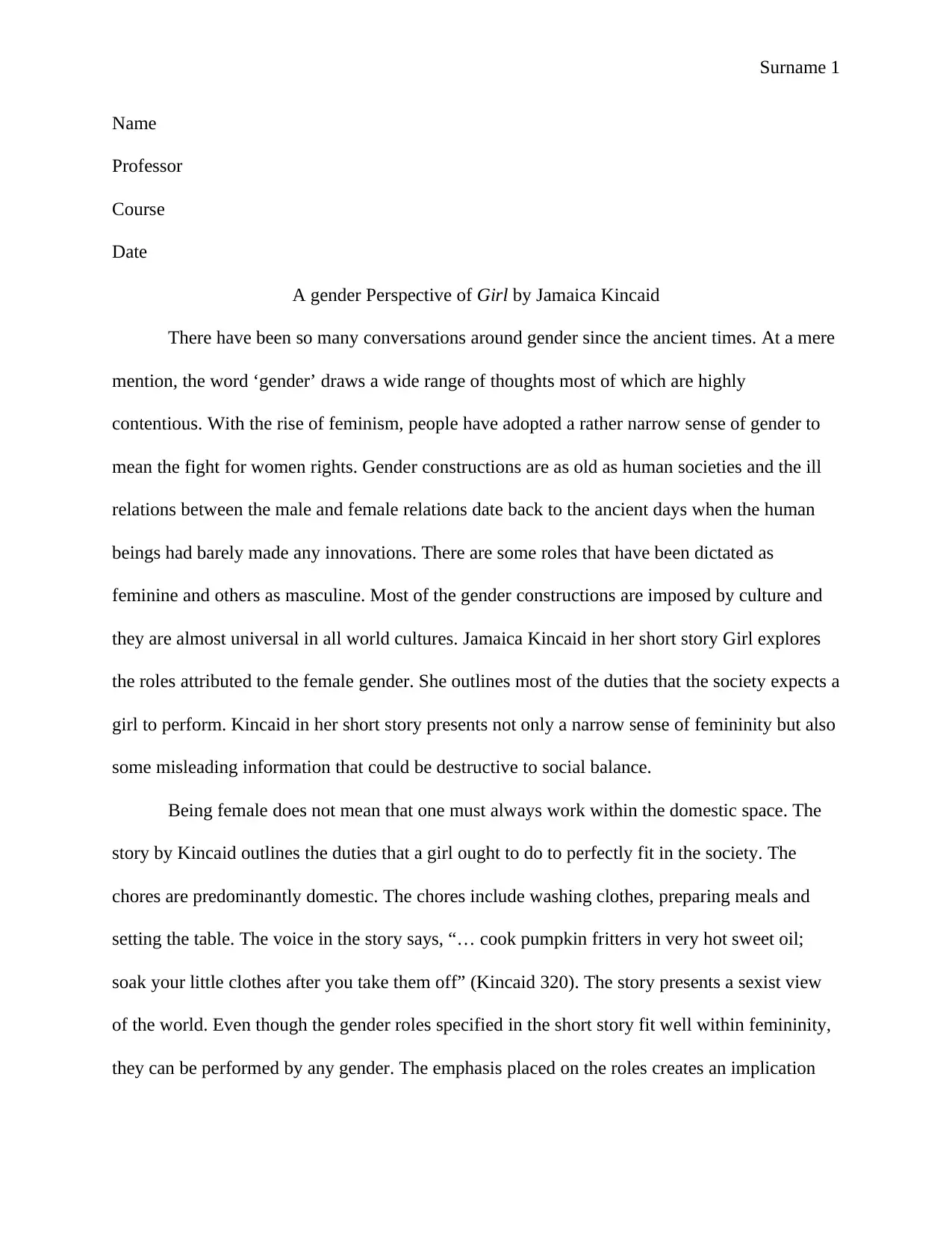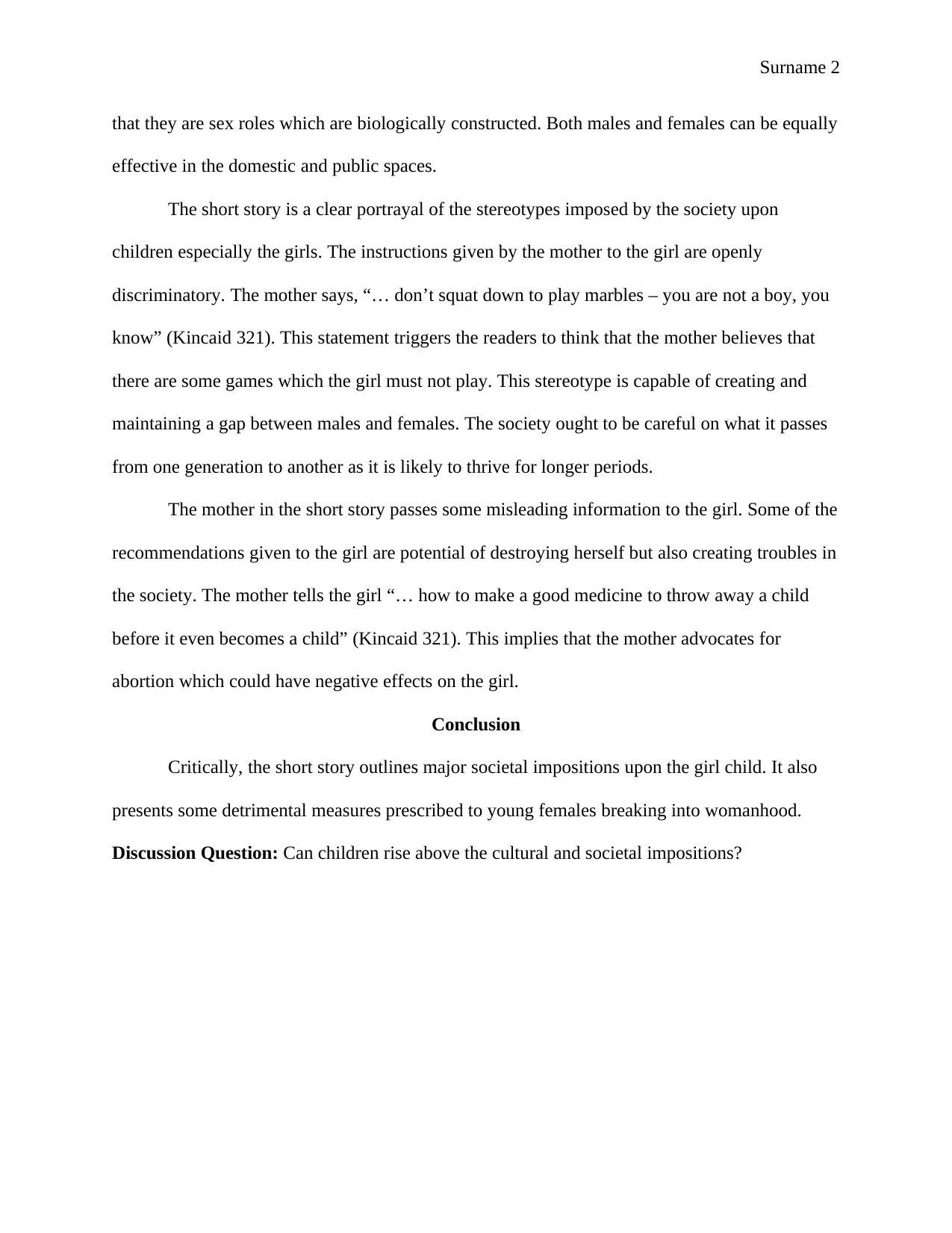An Intro. to Literary Study: Gender Perspective in 'Girl' by Kincaid
VerifiedAdded on 2022/09/06
|3
|641
|19
Project
AI Summary
This project provides an analysis of Jamaica Kincaid's short story, 'Girl', focusing on the portrayal of gender roles and societal expectations imposed on young females. The analysis examines the cultural impositions and the traditional expectations placed on the girl, primarily through the mother's instructions. The assignment explores themes of femininity, domesticity, and the potential for harmful stereotypes, while also questioning the impact of these impositions on the girl's development. The analysis also touches upon the potentially destructive aspects of some of the advice given. The project concludes with a discussion on whether children can rise above these cultural and societal impositions, reflecting on the broader implications of the story's themes.
1 out of 3








![[object Object]](/_next/static/media/star-bottom.7253800d.svg)